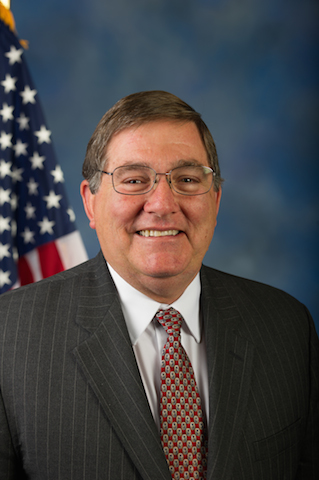health care reform
See the following -
Bridges and Roads as Important to Public Health as Medicines - Lessons from Major Disasters
 Two seemingly unrelated national policy debates are afoot, and we can’t adequately address one unless we address the other. Health care reform has been the hottest topic. What to do about America’s aging infrastructure has been less animated but may be more pressing. Yet even as cracks in America’s health system and infrastructure expand, political divides between parties and within parties have stalled efforts to develop policies and implement solutions. Problematically, debates over health care reform and infrastructure projects remain separate...
Two seemingly unrelated national policy debates are afoot, and we can’t adequately address one unless we address the other. Health care reform has been the hottest topic. What to do about America’s aging infrastructure has been less animated but may be more pressing. Yet even as cracks in America’s health system and infrastructure expand, political divides between parties and within parties have stalled efforts to develop policies and implement solutions. Problematically, debates over health care reform and infrastructure projects remain separate...
- Login to post comments
Burgess Bill Addresses Interoperability, the Leading Health IT Issue in the US
 Health care reformers around the country should be jumping up to thank Representative Michael C. Burgess (R-Texas), an MD who is working with his staff to write a bill to promote Health IT interoperability. Readers of Open Health News probably know that interoperability--in simple terms, the ability of any authorized user to read a medical record from any source--has emerged as one of the two top burning issues of health IT, the other one being the lack of usability of proprietary/lock-in electronic health records (EHRs).
Health care reformers around the country should be jumping up to thank Representative Michael C. Burgess (R-Texas), an MD who is working with his staff to write a bill to promote Health IT interoperability. Readers of Open Health News probably know that interoperability--in simple terms, the ability of any authorized user to read a medical record from any source--has emerged as one of the two top burning issues of health IT, the other one being the lack of usability of proprietary/lock-in electronic health records (EHRs).
Evolving Patient Rights In The Research And Delivery Of Health Care
...As the idea reached the proscenium this month at the Health Datapalooza, a conference founded by the US Department of Health and Human Services and now attracting more than 2,000 people, patient empowerment marks its entry into the mainstream...
- Login to post comments
Obamacare A Successful Failure
Is the Affordable Care Act a failure? For some of us, the answer is simple: If you voted for President Obama, it must be a success. If you voted against the president, it must be a failure...
- Login to post comments
Rep. Burgess' Office Releases Draft Interoperability Bill for Discussion
 The office of Rep. Michael Burgess, MD (R-TX) released a draft of the interoperability bill that they have been working for the past several months on Friday. Rep. Burgess, one of the few physicians in Congress, has been working very hard with his staff to come up with legislation that can fix the current Health IT "lock-in" crisis. This is a bipartisan effort that has full backing from the top leadership in Congress. The staff is seeking input from the Health IT community on the draft bill. Burgess's office will take comments on the draft through March 13. Rep. Burgess' staff was kind enough to provide Open Health News with a copy of the draft legislation. We have posted the entire draft bill as is below and will be writing some our thoughts over the next few days.
The office of Rep. Michael Burgess, MD (R-TX) released a draft of the interoperability bill that they have been working for the past several months on Friday. Rep. Burgess, one of the few physicians in Congress, has been working very hard with his staff to come up with legislation that can fix the current Health IT "lock-in" crisis. This is a bipartisan effort that has full backing from the top leadership in Congress. The staff is seeking input from the Health IT community on the draft bill. Burgess's office will take comments on the draft through March 13. Rep. Burgess' staff was kind enough to provide Open Health News with a copy of the draft legislation. We have posted the entire draft bill as is below and will be writing some our thoughts over the next few days.
Revisualizing and Recoding Health Care
 Two new books have me thinking about healthcare, although neither is about healthcare and, I must admit, neither of which I’ve yet read. But both appear to be full of ideas that strike me as directly relevant to the mess we call our healthcare system. The books are Atlas of the Senseable City, by Antoine Picon and Carlo Ratti, and Recoding America: Why Government Is Failing in the Digital Age and How We Can Do Better, by Jennifer Pahlka. Dr. Picon is a professor at The Harvard Graduate School of Design, and Professor Ratti is head of MIT’s Senseable Lab. Drawing on the Lab’s work, they write: “We hope to reveal here an urban landscape of not just spaces and objects, but also motion, connection, circulation, and experience.” I.e. dynamic maps. Traffic, weather, people’s moment-by-moment decisions all change how a city moves and works in real time.
Two new books have me thinking about healthcare, although neither is about healthcare and, I must admit, neither of which I’ve yet read. But both appear to be full of ideas that strike me as directly relevant to the mess we call our healthcare system. The books are Atlas of the Senseable City, by Antoine Picon and Carlo Ratti, and Recoding America: Why Government Is Failing in the Digital Age and How We Can Do Better, by Jennifer Pahlka. Dr. Picon is a professor at The Harvard Graduate School of Design, and Professor Ratti is head of MIT’s Senseable Lab. Drawing on the Lab’s work, they write: “We hope to reveal here an urban landscape of not just spaces and objects, but also motion, connection, circulation, and experience.” I.e. dynamic maps. Traffic, weather, people’s moment-by-moment decisions all change how a city moves and works in real time.
- Login to post comments
Scenarios for Health Care Reform (Part 2 of 2)
 Some health care providers balk at the requirement to share data, but their legal and marketing teams explain that they have been doing it for years already with companies whose motives are less commendable. Increasingly, the providers are won over. The analytics service appeals particularly to small, rural, and safety-net providers. Hammered by payment cuts and growing needs among their populations, they are on the edge of going out of business and grasp the service as their last chance to stay in the black...
Some health care providers balk at the requirement to share data, but their legal and marketing teams explain that they have been doing it for years already with companies whose motives are less commendable. Increasingly, the providers are won over. The analytics service appeals particularly to small, rural, and safety-net providers. Hammered by payment cuts and growing needs among their populations, they are on the edge of going out of business and grasp the service as their last chance to stay in the black...
- Login to post comments
The Promise And Peril Of OpenNotes
...I worry about and applaud the possible effects of patients being able to read their notes online. We doctors need our own forum to make notes without worrying about hurting our patient’s feelings...
- Login to post comments
We Need a Whole-Community Response in Health and Health Care
 It’s inspiring to watch the “Cajun Navy” of fishing and pleasure boats rescuing people in post-Hurricane Harvey Houston, along with the National Guard and other officials. I’m always on the look-out for examples of people pitching in to help each other and solve problems, whether in peer-to-peer health care, the Maker movement, or evacuating a plane, so I loved the article that David A. Graham just published in The Atlantic on why ordinary citizens are acting as first responders in Houston...
It’s inspiring to watch the “Cajun Navy” of fishing and pleasure boats rescuing people in post-Hurricane Harvey Houston, along with the National Guard and other officials. I’m always on the look-out for examples of people pitching in to help each other and solve problems, whether in peer-to-peer health care, the Maker movement, or evacuating a plane, so I loved the article that David A. Graham just published in The Atlantic on why ordinary citizens are acting as first responders in Houston...
- Login to post comments
What Are the Real Consequences of ObamaCare?
If America has anything, it’s a disease care system that focuses on episodic interventions by health care professionals trying to salvage a patient from the ravages of chronic diseases, many of which are self-induced. It’s a system that does not focus on health maintenance, something that really would alter the nature of the country’s well-being. I would argue that using the same money we are spending on this ObamaCare nonsense to teach kids in elementary school how to eat, shop, cook, exercise, not use drugs or tobacco and to have safe sex would probably improve health in the country far more than this bill ever did or will.
- Login to post comments
Why Your Organization Can’t Afford To Skimp On Interoperability Anymore
Interoperability is a key enabler for providers and payers to deliver on the promise of health care reform. Despite increased adoption of electronic medical records (EMRs), only a fraction of providers can demonstrate the routine ability to exchange data efficiently, prompting public criticism of the application software vendors as a barrier to achieving interoperability objectives. Recognizing that interoperability is essential, the Office of the National Coordinator released an interoperability road map intended to drive the market toward a common data set for easier data exchange.
- Login to post comments